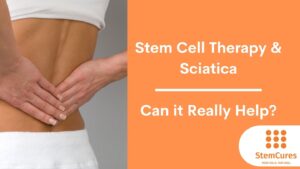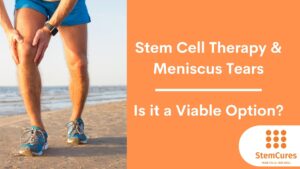Regenerative medicine is a cutting-edge form of therapy designed to treat an array of illnesses by growing replacement tissues or repairing faulty genes. While this may sound like something from a sci-fi movie, it’s quickly becoming a lucrative industry. In fact, the market is set to grow from around $10.8 billion in 2016 to 22 billion by 2025.
So, could you benefit from regenerative medicine? If you’re suffering from chronic pain in your back, neck, or joints and want to find out how this regenerative technology could positively impact your life, we’ve put together a need-to-know guide below.
What is regenerative medicine?
Regenerative medicine is not one thing. Rather, it is a group biomedical and clinical treatment that require the use of biomaterials, stem cells, plasma, or medicines that encourage the body to repair damaged cells, organs, or genes.
Although there has been some public discomfort surrounding the use of stem cells in approved treatments, routine stem cell therapies almost always involve harvesting stem cells from patients’ own bodies. As such, the practice is considered ethically sound.
It is hoped that regenerative treatments will transform the world of medicine in future, with widespread uptake in hospitals and other treatment centers. Although such methods are unlikely to replace conventional treatments just yet, an array of biotech and genetic engineering firms are currently working on developing new treatments for diseases such as cancer.
How does regenerative medicine work?
Regenerative medicine works by treating the root causes of injury and disease by replacing lost cells or altering faulty genes. Various methodologies fall under the umbrella of regenerative medicine, although they all work in similar ways by encouraging the body to heal itself.
Did you know that our bodies have the inherent ability to heal themselves after trauma or invasion by pathogens? Regenerative medicine is simply a method of harnessing this ability and accelerating its effects.
How much does regenerative medicine cost?
Regenerative treatment costs vary widely, ranging anywhere from $500 to somewhere in the hundreds of thousands. While most insurance policies are yet to cover regenerative treatments, many patients who decide to pay out-of-pocket discover that they have made the right choice.
Say, for example, you’re given the choice of undergoing knee surgery or investing in cutting-edge stem cell therapy to treat your joint pain. While your insurance policy may cover the surgery, the recovery time for such an invasive treatment is likely to be much longer than the time you need to recover from stem cell therapy. If you have an active job and rely on your mobility to generate a monthly income, a non-invasive method could save much more money than it costs. It is also worth noting that stem cell therapy could improve your quality of life much sooner than surgery.
In this way, you must weigh all the pros and cons of regenerative medicine before assessing its cost-effectiveness.
What can regenerative medicine be used for?
There are several uses for regenerative medicine, with some applications more widely used and scientifically advanced than others. Treatments such as bone marrow transplants and blood transfusions, for example, have been around for decades. At the moment, medical professionals are generally able to offer the following treatments:
Stem cell therapies:
Stem cell therapies are used to treat an array of disorders. The most widely adopted stem cell treatment involves the transplantation of blood stem cells to address diseases of the blood or immune system. Stem cells from patients’ bone marrow can be also used to address orthopedic conditions such as osteoarthritis or damage to the knee cartilage. In many ways, stem cell therapy is the most advanced subdivision of regenerative medicine.
Tissue engineering:
Tissue engineering involves placing biologically friendly scaffolds at carefully positioned points in the body. These scaffolds attract cells and, in combination with exercise, help to develop new functional tissues.
In other words, the list of conditions that regenerative medicine could treat is long. Examples include:
- Herniated disc
- Osteoarthritis
- Peripheral neuropathy
- Knee and hip pain
- Spinal stenosis
- Degenerative disc disease
- Facet arthritis
- Sports injuries such as tennis elbow
- Lower back pain
How successful is regenerative medicine?
Results can vary between patients. However, we at StemCures are proud to report excellent success rates upwards of 90% amongst our patients. As you can see from our testimonial videos, a significant number of our patients have witnessed a substantial improvement in their pain following stem cell treatment.
With the right medical professionals on board, you can expect to see results within several weeks or months.
Even elderly or very frail patients have experienced life-changing results with StemCures’ resident specialist, Dr Atluri. Don’t hesitate to get in touch if you would like to find out more about our procedures and success stories.
Does regenerative medicine really work?
Yes. While studies are ongoing for many regenerative therapies, several clinical trials have returned outstanding results demonstrating the effectiveness of stem cell injections for people with lower back and pain.
Does Medicare cover regenerative medicine?
In short, no. Medicare covers stem cell therapy for a very small number of uses, including treating sickle cell disease and certain types of blood cancer. As orthopedic stem cell treatments are still relatively new, Medicare does not cover them.
While this may come as disappointing news, further clinical trials could convince policymakers to add more regenerative therapies to Medicare’s list of approved treatments in future.
Reach out to our regenerative medicine experts today!
Are you suffering from chronic back, neck, knee, or hip pain? Don’t suffer in silence. At StemCures, we’re committed to delivering safe, effective, and cost-effective regenerative therapies for patients in Cincinnati. Rest assured that we will work with you to produce the results you desire.
Whatever your problem, we’re ready and waiting to hear from you. Get in touch today on 513-624-7525 or by emailing [email protected].













